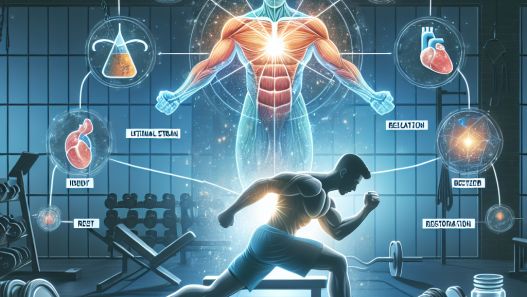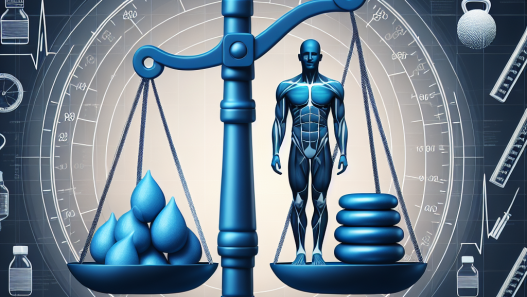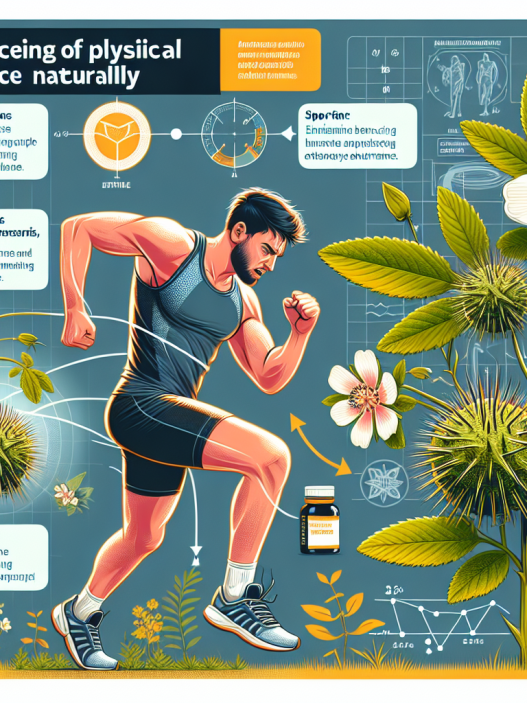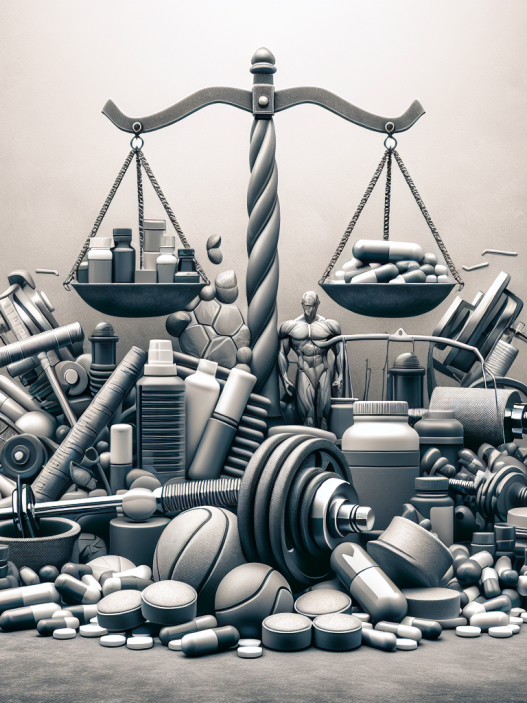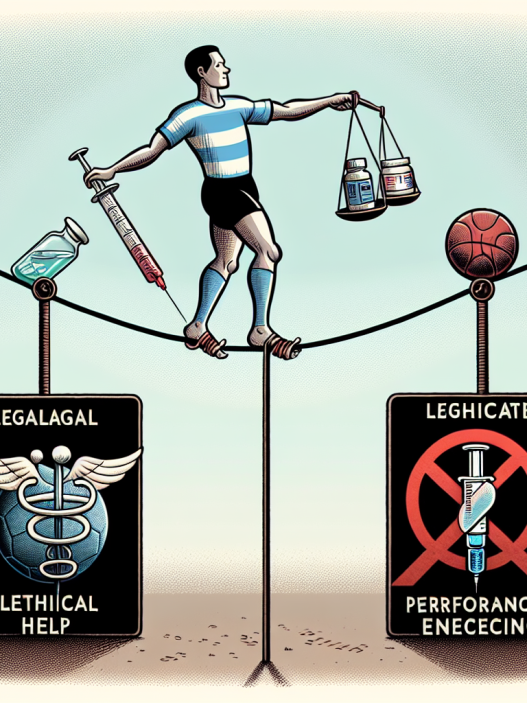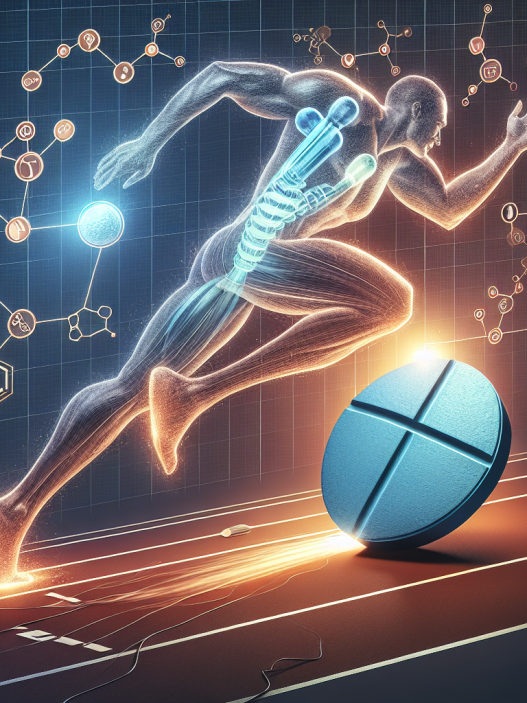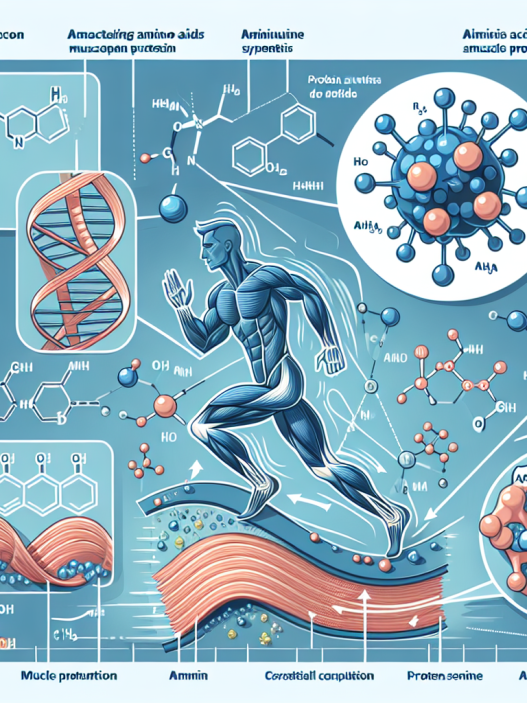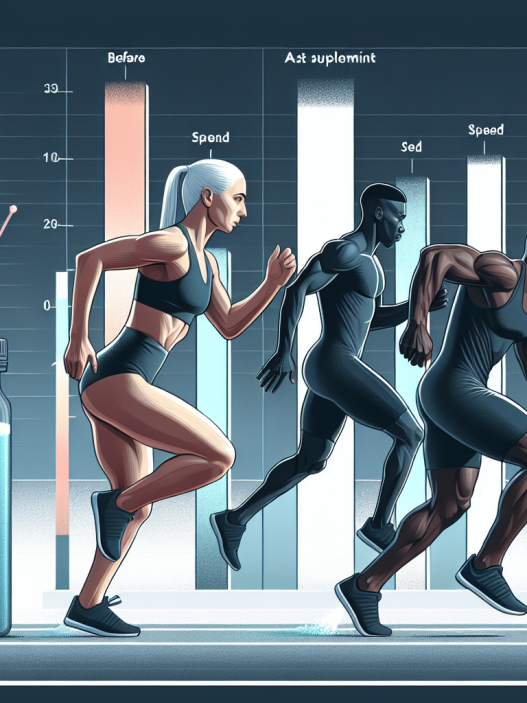-
Table of Contents
The Effects of Tribulus Terrestris on Athletes’ Hormonal Balance
Athletes are constantly seeking ways to improve their performance and gain a competitive edge. This often leads them to explore various supplements and substances that claim to enhance their physical abilities. One such supplement that has gained popularity in recent years is tribulus terrestris, a plant-based extract that is believed to have positive effects on athletes’ hormonal balance. In this article, we will delve into the pharmacokinetics and pharmacodynamics of tribulus terrestris and examine its potential impact on athletes’ hormonal balance.
What is Tribulus Terrestris?
Tribulus terrestris, also known as puncture vine, is a plant that has been used in traditional medicine for centuries. It is native to warm and tropical regions and is commonly found in Asia, Africa, and Europe. The plant has been used to treat various ailments, including sexual dysfunction, cardiovascular diseases, and inflammation.
In recent years, tribulus terrestris has gained popularity as a supplement for athletes due to its purported ability to increase testosterone levels. Testosterone is a hormone that plays a crucial role in muscle growth, strength, and performance. Therefore, it is not surprising that athletes are interested in any substance that claims to boost testosterone levels.
Pharmacokinetics of Tribulus Terrestris
The active compounds in tribulus terrestris are saponins, which are believed to be responsible for its potential effects on testosterone levels. These saponins are absorbed in the small intestine and then enter the bloodstream. Once in the bloodstream, they are transported to the liver, where they are metabolized and broken down into their active form.
Studies have shown that the absorption of saponins from tribulus terrestris is relatively low, with only a small percentage reaching the bloodstream. This is due to the fact that saponins are not easily absorbed by the body and are quickly broken down by enzymes in the gut. Therefore, to achieve the desired effects, athletes often take high doses of tribulus terrestris.
Pharmacodynamics of Tribulus Terrestris
The exact mechanism of action of tribulus terrestris on testosterone levels is not fully understood. However, it is believed that the saponins in the plant extract may stimulate the production of luteinizing hormone (LH) in the pituitary gland. LH is responsible for signaling the testes to produce testosterone. Therefore, by increasing LH levels, tribulus terrestris may indirectly lead to an increase in testosterone production.
Additionally, tribulus terrestris may also have anti-inflammatory and antioxidant properties, which can benefit athletes by reducing muscle damage and promoting recovery. This is especially important for athletes who engage in high-intensity training, as they are more prone to inflammation and oxidative stress.
Effects on Hormonal Balance
One of the main concerns surrounding the use of tribulus terrestris is its potential impact on hormonal balance. Testosterone is a delicate hormone, and any disruption in its levels can have significant consequences on an athlete’s health and performance. Therefore, it is essential to understand the effects of tribulus terrestris on hormonal balance.
Several studies have been conducted to examine the effects of tribulus terrestris on testosterone levels in athletes. A study by Rogerson et al. (2007) found that supplementation with tribulus terrestris for five weeks had no significant effect on testosterone levels in resistance-trained males. Similarly, another study by Neychev and Mitev (2005) showed no significant changes in testosterone levels in elite wrestlers after taking tribulus terrestris for four weeks.
However, a study by Gauthaman et al. (2002) reported a significant increase in testosterone levels in men with low sperm count after taking tribulus terrestris for two months. This suggests that tribulus terrestris may have a more significant impact on individuals with hormonal imbalances rather than healthy athletes.
Furthermore, it is important to note that the increase in testosterone levels observed in some studies may not be significant enough to have a noticeable effect on athletic performance. Testosterone levels naturally fluctuate throughout the day, and small changes may not have a significant impact on an athlete’s performance.
Real-World Examples
Despite the lack of conclusive evidence on the effects of tribulus terrestris on hormonal balance, many athletes continue to use it as a supplement. One example is the Bulgarian weightlifting team, who reportedly used tribulus terrestris during the 1988 Olympics and won seven gold medals. However, it is worth noting that this is only anecdotal evidence and cannot be used to draw any definitive conclusions.
Another real-world example is the case of a professional cyclist who was banned from competition for testing positive for an anabolic steroid. The athlete claimed that the positive test was due to the use of a supplement containing tribulus terrestris. However, further investigation revealed that the supplement also contained an anabolic steroid, which was not listed on the label. This highlights the importance of being cautious when using supplements and ensuring that they are from reputable sources.
Expert Opinion
While there is some evidence to suggest that tribulus terrestris may have a positive impact on hormonal balance, more research is needed to fully understand its effects. As with any supplement, it is crucial to consult with a healthcare professional before use and to carefully consider the potential risks and benefits.
Furthermore, it is important to note that tribulus terrestris is not a magic pill that will automatically improve athletic performance. Proper training, nutrition, and rest are still the most crucial factors in achieving optimal performance. Supplements should only be used as a complement to a well-rounded training program.
References
Gauthaman, K., Ganesan, A. P., & Prasad, R. N. (2002). Sexual effects of puncturevine (Tribulus terrestris) extract (protodioscin): an evaluation using a rat model. Journal of Alternative and Complementary Medicine, 8(4), 417-421.
Neychev, V. K., & Mitev, V. I. (2005). The aphrodisiac herb Tribulus terrestris does not influence the androgen production in young men. Journal of Ethnopharmacology, 101(1-3), 319-323.
Rogerson, S., Riches, C. J., Jennings, C., Weatherby, R. P., Meir, R. A., & Marshall-Gradisnik, S. M. (2007). The effect of five weeks of Tribulus terrestris supplementation on muscle strength and body composition during preseason training in elite rugby league players. Journal of Strength and Conditioning Research, 21(2), 348-353.
In conclusion, tribulus terrestris is

